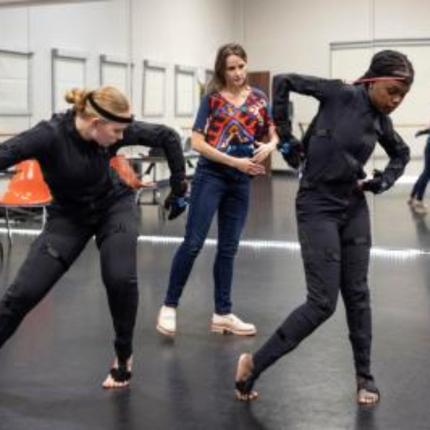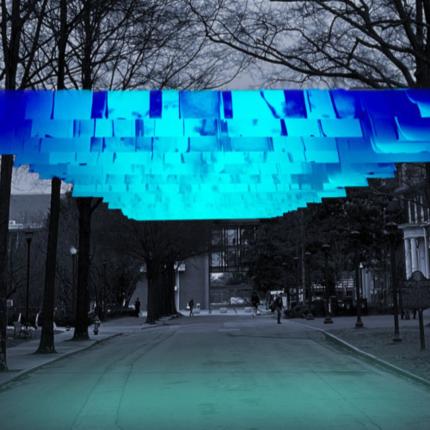The term “new media” refers to any media that’s digital, such as a TV show, a blog, or an online newspaper.
However, "even though it's in the title of my professorship, the phrase is old and isn't that commonly used anymore," says Jay Bolter, professor and Wesley Chair of New Media at Georgia Tech's School of Literature, Media, and Communication. "The reason for that is because it has a shelf life. That is to say, what's new media today isn't new media tomorrow, or at least won't be in five years or ten years, given the pace of change in digital technology."
So, if it isn't called new media anymore, what are Georgia Tech students learning?
The Metaverse
“One of the candidates for a new encompassing term is 'the metaverse,'" Bolter says. "The metaverse refers to a combination of the latest trends in media forms and digital technologies, such as virtual and augmented reality, artificial intelligence, and Web 3.0 and blockchain (of which cryptocurrency is an example)."
As the cost of virtual reality headsets decreases, it’s becoming a medium rather than just a technology, Bolter explains. "For something to become a medium in our media culture, it has to not only have a technological foundation, but it also has to have a widespread enough audience to attract a community of makers. Then it can become a form of communication and expression in our society."
Computational Media at Georgia Tech
In Georgia Tech's Computational Media degree program, directed by Bolter and jointly offered by the School of Literature, Media, and Communication, the School of Music, and the College of Computing, students use various digital media technologies to tell stories in innovative and interactive ways.
"When you combine artificial intelligence with virtual reality and augmented reality, you have the possibility for new forms that are adaptive, intelligent, and responsive to users in new ways," Bolter explains.
For example, Professor Brain Magerko's Expressive Machinery Lab works on projects with dancing robots and using music to teach coding. Distinguished Professor Janet Murray leads the Pickrick Restaurant Augmented Reality Project, which she describes as "an exercise in using AR storytelling to make the invisible visible."
Through Murray's iPad app, people can watch the historical events that happened on what is now an otherwise unassuming Georgia Tech campus lawn.
Today's Technology — And Tomorrow's
"One of the things that we emphasize the most in the program is that teaching you today's technologies — that's not enough," Bolter says. "You have to be prepared to change with the times and become capable in new technologies as applications and tools develop."
"There's a tendency in the technology industries to think very straightforwardly, like, what's the next greatest leap forward, and what are all the great things it will bring? But it's important to have a sense of the limitations, issues, and challenges that arise," he explains.
"The way the computational media degree combines critical thinking and design with technological competence equips our students in a unique way to fulfill that role, and I think — at least I hope — that that's the kind of skill set that will be more sought-after in the industry in the years to come."



